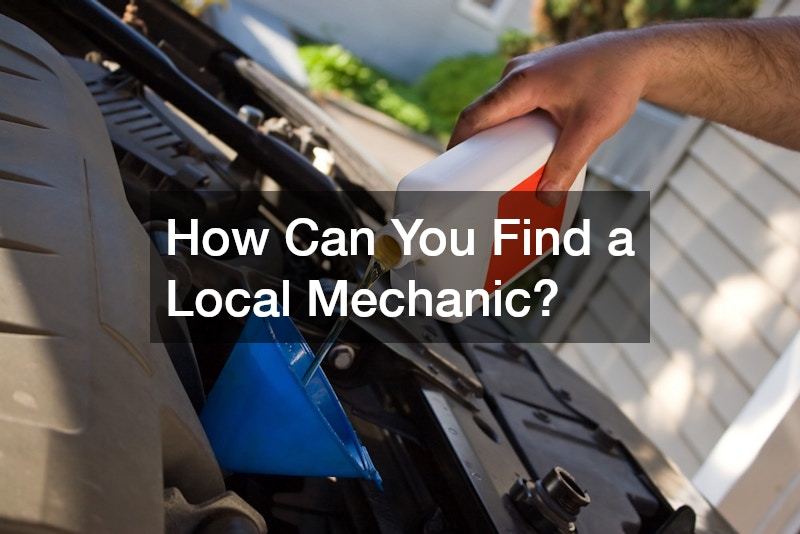In today’s fast-paced world, understanding your vehicle is more crucial than ever. The routine maintenance and emergency situations we face dictate the significance of asking the right automotive questions. Whether it’s about knowing whom to call for roadside assistance, understanding when your windshield needs replacement, or how to find a trustworthy auto repair shop, being informed is key to ensuring your vehicle operates safely and efficiently.
As car owners, we often encounter various scenarios that require quick decision-making. Consequently, having the answers to key automotive questions can not only save you time but also protect your investment. From regular maintenance inquiries to urgent situations, asking the right questions leads to better vehicle care and enhanced safety.
This article delves into essential automotive questions every car owner should consider. Addressing diverse topics, including roadside assistance, tire care, and collision report procedures, we aim to equip you with the knowledge needed to navigate automotive challenges confidently. Let’s explore these questions to promote safe and efficient vehicle ownership.
Who Should You Call for Roadside Assistance?

When facing a breakdown, knowing who to call for roadside assistance is paramount. Automotive questions regarding auto towing services often arise when your vehicle becomes immobile due to mechanical failure or an accident. Having a trusted roadside assistance number on hand can minimize stress and expedite help on the road.
Most manufacturers offer roadside assistance packages, and many insurance providers include it in their policies. It’s essential to review these options and keep a contact number readily accessible. By understanding your options for auto towing, you can ensure that you are not left helpless during an inconvenient situation.
Ultimately, the right roadside assistance can help with towing, battery jumps, flat tire changes, and even fuel delivery. Knowledge about your assistance options paves the way for a smoother experience during vehicle breakdowns. Therefore, understanding who to call for roadside assistance is an automotive question that should be answered before a crisis arises.
What Size Windshield Crack Requires a Replacement?
Windshield integrity is crucial for safe driving; thus, knowing when to replace it is a pivotal automotive question. Windshield replacement is often necessary when cracks exceed a certain length or are located in critical areas, obstructing the driver’s view. Physical conditions that warrant replacement often include cracks longer than three inches or chips larger than the size of a quarter.
While minor chips can typically be filled, larger cracks may lead to further damage, jeopardizing both safety and visibility. Additionally, if a crack lies in the driver’s direct line of sight, manufacturers recommend windshield replacement for safety reasons. Regular inspections of your windshield can help identify issues before they escalate into larger problems.
In an age where car technology is constantly advancing, keeping your windshield in top condition is more critical than ever. Knowing when to seek professional help is essential to prevent safety hazards and costly repairs down the line. Always remember, when it comes to your windshield, it’s better to err on the side of caution.
Does Detailing Improve Durability?
Auto detailing serves various purposes, but one of the main automotive questions concerns its impact on the durability of your vehicle. Professional detailing involves thorough cleaning, polishing, and protecting various surfaces, including paint, fabric, and leather. This meticulous cleaning not only enhances your car’s aesthetics but also contributes to long-term maintenance.
When properly applied, protective coatings and sealants can reduce wear and tear while providing a barrier against the elements. Detailing keeps your car looking newer and can mitigate rust and corrosion, thus prolonging its lifespan. In this sense, detailing not only maintains appearance but also visibly enhances the durability of the vehicle.
Regular auto detailing can also improve your vehicle’s resale value, making it easier to sell down the road. A car that has been well-maintained will attract more buyers and likely sell for a higher price. Therefore, understanding the benefits of auto detailing is essential for anyone looking to safeguard their investment.
How Can You Find a Local Mechanic?

Finding a reliable local mechanic is one of the most critical automotive questions you may face as a car owner. The quality of service can vary widely, so it’s essential to do your research before selecting a local auto repair shop. Online reviews and customer testimonials can provide valuable insights into the shop’s reputation and reliability.
Another strategy is seeking recommendations from friends and family who have had positive experiences with local mechanics. Knowing whom to trust can save you time, money, and potential stress when repairs are needed. Additionally, visiting potential shops for a consultation can further help you assess their professionalism and communication skills.
Finally, it’s significant to ensure that the local auto repair shop employs certified technicians who are experienced in handling your vehicle’s make and model. A mechanic with a strong background can better address your automotive questions and provide specialized service. Building a relationship with your local mechanic can lead to consistent, quality care for your vehicle over time.
How Long Can You Wait for Repairs?
An essential automotive question is understanding how long you can safely wait before getting needed auto repairs. Delaying repairs can exacerbate the issue and lead to more extensive damage, thus increasing repair costs. Knowing the right time to consult a mechanic can prevent minor issues from evolving into significant problems.
Common signs that indicate you shouldn’t wait include unusual sounds, warning lights on the dashboard, or diminished vehicle performance. Each of these signals can point toward underlying issues that, if left unaddressed, may require extensive fixes. Regular vehicle maintenance checks can help you identify problems early and avoid prolonged wait times.
Moreover, staying proactive about repairs showcases responsibility as a vehicle owner. In the long run, prioritizing timely auto repairs contributes to vehicle safety, efficiency, and reliability. Always remember: the sooner you take action, the less severe and less costly the repairs typically become.
How Do You Report an Accident?
Knowing how to report an accident is a crucial automotive question every driver should be prepared to answer. Immediately after a collision, it’s important to ensure everyone’s safety before doing anything else. Contacting emergency services and exchanging information with other parties involved are vital steps in the accident reporting process.
After securing safety, documenting the scene—including taking photos and collecting witness statements—is crucial. This information is beneficial for both insurance claims and collision repair services. Understanding the requirements in your state for reporting accidents can significantly impact the effectiveness of your claim process.
Furthermore, timely reporting can expedite insurance assessments and repair work. Holding onto any records associated with the accident can also benefit future interactions with insurance companies. Ultimately, knowing how to report an accident can help safeguard against legal and financial complications down the line.
What Noises Are Normal for Brakes?

Asking what noises are normal for brakes is a vital automotive question since sounds can indicate varying issues. While some brake sounds are perfectly normal—like a light squeal when applying the brakes—other noises warrant immediate attention. Grinding or squealing often indicates that brake pads are worn down and need replacing.
Becoming acquainted with your vehicle’s sounds can be especially advantageous for early detection of issues. If you notice inconsistent noises when braking, it might be time to consult a mechanic for brake repairs. Most importantly, never ignore warning sounds, as they can signify serious safety concerns that require immediate attention.
Additionally, understanding the differences in the noise can help convey specific problems to your mechanic effectively. The more you know about your brakes, the better you’ll be at recognizing when repair is necessary. Addressing brake concerns promptly can keep you safe while driving and prevent more extensive damage to the braking system.
How Often Should You Replace Tires?
Tire care is vital for vehicle safety, and one of the primary automotive questions revolves around how often you should replace them. Generally, tires should be replaced every 6 years, but this can vary based on usage, wear, and road conditions. A close inspection for tread depth and signs of damage can provide insight into whether it’s time for a new set.
Regularly checking the tread on your tires can prevent dangerous blowouts and enhance traction in slippery conditions. Worn or unevenly worn tires should be addressed immediately to ensure safe driving. Additionally, aligning and balancing your tires can enhance their longevity and performance.
Investing in high-quality tires tailored to your driving needs is essential. Understanding how factors like weather and regular driving conditions can affect tire lifespan allows for better-informed decisions. Make tire checks and replacements a priority to ensure a safer driving experience.
What Are Some Helpful Additions?
Car accessories are one automotive question worth exploring, as they can significantly enhance both functionality and comfort. From seat covers to entertainment systems, the right accessories can make a significant difference in your driving experience. Many drivers find that even simple additions can lead to improved convenience and enhanced vehicle utility.
Consider items like Bluetooth kits, phone mounts, and enhanced lighting features that can improve your car experience. Accessories can also provide protection, such as weather mats and sunshades, which help maintain your vehicle’s aesthetic appeal. Moreover, features such as upgraded sound systems can transform mundane commutes into enjoyable journeys.
Ultimately, selecting the right accessories is about understanding your needs as a driver and passenger. The market offers numerous options tailored to different lifestyles and preferences. Investing in useful car accessories can ultimately elevate the overall driving experience.
Should You Take Your Car to a Specialist?

When dealing with specific automotive issues, understanding whether to take your car to a specialist is a key question to consider. Mechanics specializing in certain brands, like Audi repair, often have advanced training and better equipment for those makes and models. Their expertise can lead to more accurate diagnostics and efficient repairs, saving you time and money in the long run.
Specialists usually stay updated with particular manufacturer protocols and recall information that can benefit your vehicle. Regular visits to specialized repair shops can lead to more reliable service and a better understanding of your specific needs. The more knowledgeable technician can improve your vehicle’s performance and longevity.
Ultimately, knowing when to seek out a specialist can be vital for specific repairs and warranty concerns. Follow the manufacturer’s recommendations and stay informed about the quality of care available for your specific vehicle model. Specializing in car makes and models ensures that your vehicle receives expert care throughout its lifespan.
These are essential automotive questions that every car owner should ponder. From understanding who to call for roadside assistance to the importance of knowing when to report an accident, informed decisions can significantly affect your driving experience. Additionally, whether you’re inquiring about the frequency of tire replacement or the benefits of car detailing, having the right information ensures that your vehicle stays safe and reliable.
Maintaining open communication with your local mechanic or a specialist also fosters a productive relationship that benefits your vehicle’s performance. Remember, foundational knowledge on automotive issues can enhance safety and reduce long-term costs. By engaging with these automotive questions, you can ensure more efficient vehicle ownership and a hassle-free driving experience.



